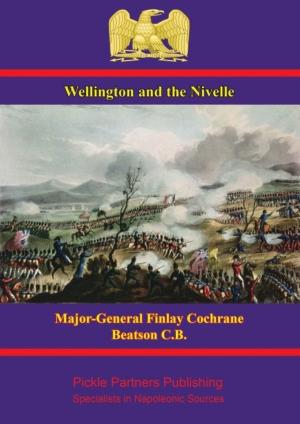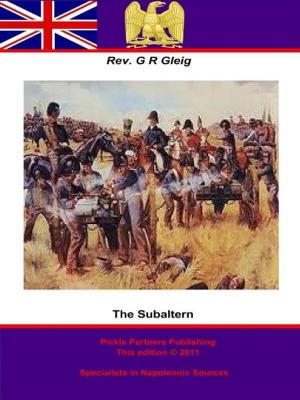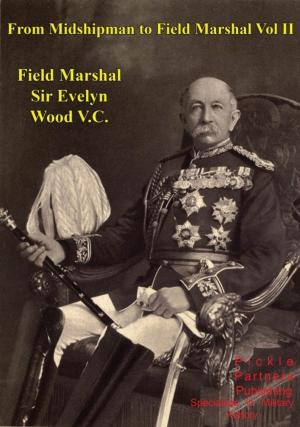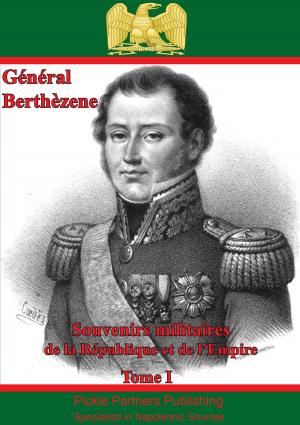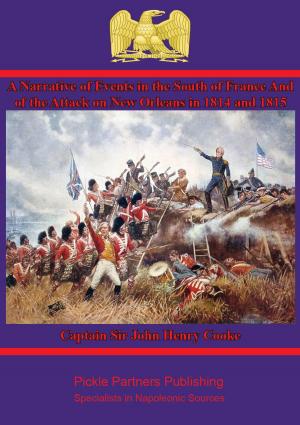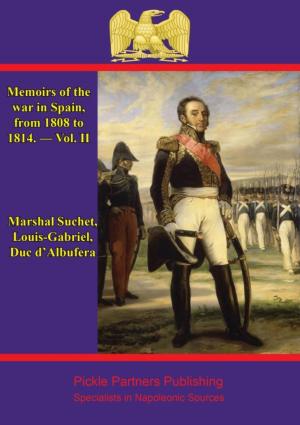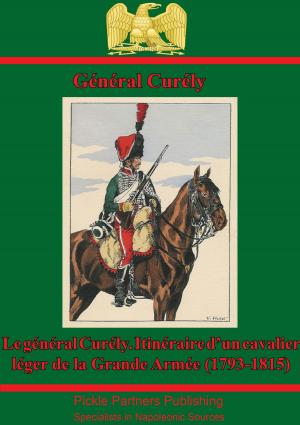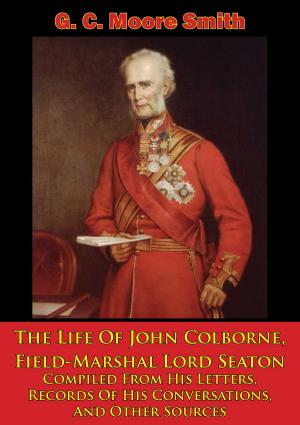Celer et Audax — A Sketch of the Services of the 5th Battalion, 60th Regiment (Rifles)
Nonfiction, History, Spain & Portugal, France, Military| Author: | Major-General Gibbes Rigaud | ISBN: | 9781908902481 |
| Publisher: | Wagram Press | Publication: | May 1, 2012 |
| Imprint: | Wagram Press | Language: | English |
| Author: | Major-General Gibbes Rigaud |
| ISBN: | 9781908902481 |
| Publisher: | Wagram Press |
| Publication: | May 1, 2012 |
| Imprint: | Wagram Press |
| Language: | English |
During the Peninsular War, the services of the 95th Rifles led to fame and frequent mentions in despatches as their united battalions in the Light Division fought with distinction. No less of a band of skirmishers were the 5th Batt. 60th Rifles, the eyes and ears of the other divisions; why they did not receive the same plaudits as their brother riflemen of the 95th is one of the injustices of the Peninsular War, even though it disbanded soon after war end. The men of the 5th Batt. 60th never fought as a united body being distributed in companies amongst the British brigades, and as such never received the attention that they deserved. This book, written by an officer of the 60th, seeks to rectify that error.
The 60th were in fact raised by the father of all British riflemen, General de Rottenburg, an émigré officer of the French service. He wrote influential books on skirmishing and out-post duties that were to become the backbone of the drill of the 60th as well as the 95th. This is the story of their battles (Vimiero, Talavera, Busaco, Fuentes d’Oñoro, Ciudad Roderigo, Badajoz, Salamanca, Vittoria, the Nive, Nivelle and Toulouse), anecdotes of the out-post struggles, their men, and their training based on original manuscript diaries as well as a host of regimental sources.
Of the Author — “Gibbes Rigaud was born in Richmond, Surrey, the third son of Stephen Peter Rigaud, the Astronomer and Radcliff Observer at Oxford. Commissioned a 2nd Lieutenant in 1841; he was promoted to Lieutenant in 1844 and Captain in 1850. With the 2nd Battalion 60th Rifles he served in the 3rd Kaffir War, 1850-53. Promoted to Major in 1858, he sailed to India in that year and was instrumental in quelling a mutiny which broke out on board the troopship which had become becalmed. He then served in the 2nd China War, for which he was mentioned in despatches and received the brevet of Lieutenant-Colonel. Rigaud was promoted to Colonel in 1868 and attained the rank of Major-General in 1873. Retiring on Full Pay to the City of Oxford, he spent his remaining years writing, and received an honorary degree of M.A. from Oxford University.”-Dix Noonan Webb
During the Peninsular War, the services of the 95th Rifles led to fame and frequent mentions in despatches as their united battalions in the Light Division fought with distinction. No less of a band of skirmishers were the 5th Batt. 60th Rifles, the eyes and ears of the other divisions; why they did not receive the same plaudits as their brother riflemen of the 95th is one of the injustices of the Peninsular War, even though it disbanded soon after war end. The men of the 5th Batt. 60th never fought as a united body being distributed in companies amongst the British brigades, and as such never received the attention that they deserved. This book, written by an officer of the 60th, seeks to rectify that error.
The 60th were in fact raised by the father of all British riflemen, General de Rottenburg, an émigré officer of the French service. He wrote influential books on skirmishing and out-post duties that were to become the backbone of the drill of the 60th as well as the 95th. This is the story of their battles (Vimiero, Talavera, Busaco, Fuentes d’Oñoro, Ciudad Roderigo, Badajoz, Salamanca, Vittoria, the Nive, Nivelle and Toulouse), anecdotes of the out-post struggles, their men, and their training based on original manuscript diaries as well as a host of regimental sources.
Of the Author — “Gibbes Rigaud was born in Richmond, Surrey, the third son of Stephen Peter Rigaud, the Astronomer and Radcliff Observer at Oxford. Commissioned a 2nd Lieutenant in 1841; he was promoted to Lieutenant in 1844 and Captain in 1850. With the 2nd Battalion 60th Rifles he served in the 3rd Kaffir War, 1850-53. Promoted to Major in 1858, he sailed to India in that year and was instrumental in quelling a mutiny which broke out on board the troopship which had become becalmed. He then served in the 2nd China War, for which he was mentioned in despatches and received the brevet of Lieutenant-Colonel. Rigaud was promoted to Colonel in 1868 and attained the rank of Major-General in 1873. Retiring on Full Pay to the City of Oxford, he spent his remaining years writing, and received an honorary degree of M.A. from Oxford University.”-Dix Noonan Webb

